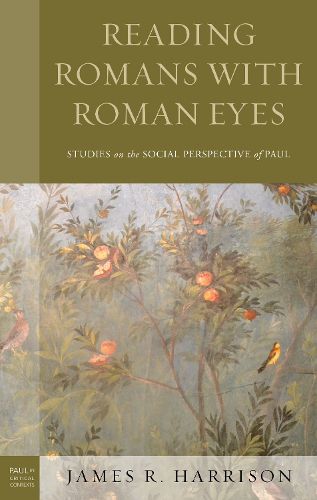Readings Newsletter
Become a Readings Member to make your shopping experience even easier.
Sign in or sign up for free!
You’re not far away from qualifying for FREE standard shipping within Australia
You’ve qualified for FREE standard shipping within Australia
The cart is loading…






Paul’s letter to the Romans has a long history in Christian dogmatic battles. But how might the letter have been heard by an audience in Neronian Rome? James R. Harrison answers that question through a reader-response approach grounded in deep investigations of the material and ideological culture of the city, from Augustus to Nero. Inscriptional, archaeological, monumental, and numismatic evidence, in addition to a breadth of literary material, allows him to describe the ideological value system of the Julio-Claudian world, which would have shaped the perceptions and expectations of Paul’s readers. Throughout, Harrison sets prominent Pauline themes–his obligation to Greeks and barbarians, newness of life and of creation against the power of death, the body of Christ, boasting in glory, God’s purpose in and for Israel–in startling juxtaposition with Roman ideological themes. The result is a richer and more complex understanding of the letter’s argument and its possible significance for contemporary readers.
$9.00 standard shipping within Australia
FREE standard shipping within Australia for orders over $100.00
Express & International shipping calculated at checkout
Paul’s letter to the Romans has a long history in Christian dogmatic battles. But how might the letter have been heard by an audience in Neronian Rome? James R. Harrison answers that question through a reader-response approach grounded in deep investigations of the material and ideological culture of the city, from Augustus to Nero. Inscriptional, archaeological, monumental, and numismatic evidence, in addition to a breadth of literary material, allows him to describe the ideological value system of the Julio-Claudian world, which would have shaped the perceptions and expectations of Paul’s readers. Throughout, Harrison sets prominent Pauline themes–his obligation to Greeks and barbarians, newness of life and of creation against the power of death, the body of Christ, boasting in glory, God’s purpose in and for Israel–in startling juxtaposition with Roman ideological themes. The result is a richer and more complex understanding of the letter’s argument and its possible significance for contemporary readers.